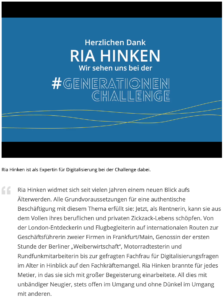Neuer UN-Bericht fordert Sicherheit für humanitäre Helfer – World Vision mahnt zu globaler Verantwortung
Genf/Friedrichsdorf, (04.12.2024) – Die Zahl der Kinder, die in Konfliktgebieten leiden, hat einen erschreckenden Rekord erreicht. Die internationale Kinderhilfsorganisation World Vision weist anlässlich des Berichts zum weltweiten Bedarf an humanitärer Hilfe , der jährlich vom UN-Nothilfebüro veröffentlicht wird, auf die verheerenden Folgen von Kriegen und langanhaltenden Konflikten für Kinder hin.
„Was sich hinter den Zahlen im Bericht verbirgt, sind inakzeptable Tatsachen: jedes fünfte Kind weltweit lebt in einem Konfliktgebiet oder ist aus einem geflohen. Das sind 400 Millionen Kinder, deren Leben akut bedroht ist und die kaum eine Chance auf eine gesunde Entwicklung und Bildung haben,“ sagt Janine Lietmeyer, Vorständin von World Vision Deutschland.
Syrien als Symbol für Missachtung des Völkerrechts
Besonders besorgniserregend ist die weit verbreitete Missachtung des humanitären Völkerrechts durch Konfliktparteien. Ein aktuelles Beispiel hierfür ist der Nord-Westen Syriens, in dem das Kriegsgeschehen zwischen dem syrischen Regime und bewaffneten Gruppen gerade akut wieder aufflammt. Die Region war in den zwölf Jahren des Konflikts Schauplatz von zahllosen Verstößen gegen die Verpflichtung zum Schutz von humanitären Organisationen und Einrichtungen. „Die Situation in den Vertriebenenlagern in Syrien, wo die Menschen jetzt in erneuter Furcht vor Luftangriffen leben, ist für Kinder mehr als bedrückend. Und dies ist nur ein Beispiel dafür, wie groß die Herausforderungen sind, unter denen World Vision und andere humanitäre Organisationen täglich Hilfe leisten. Lebensrettende Maßnahmen sind solange notwendig und unverzichtbar, bis es dauerhafte politische Lösungen für Konflikte gibt,“ führt Lietmeyer weiter aus.
Appell zur Hilfe – effizient, lokal verankert und humanitär
Anlässlich der Veröffentlichung des UN-Berichts hat World Vision gemeinsam mit mehr als 100 humanitären Akteuren ein Statement veröffentlicht. Die Unterzeichner fordern die internationale Gemeinschaft auf, effiziente, lokal verankerte und den humanitären Prinzipien verpflichtete humanitäre Hilfe zu gewährleisten.
Global Humanitarian Overview Launch Geneva, Switzerland, 4 December 2024
We are witnessing unspeakable human suffering due to the proliferation of conflicts lacking political solutions and the normalization of International Humanitarian Law violations. Indiscriminate attacks on civilians and humanitarian workers, the bombing of schools and hospitals, and the use of starvation and sexual violence as methods of warfare are devastating communities worldwide. Climate shocks, economic fragility, and protracted conflict are exacerbating humanitarian needs, leading to unprecedented levels of displacement and an escalating global hunger crisis. Boundary-setting and narrower definitions of people in need are resulting in a highly prioritized 2025 GHO. With limited complementarity with development and other actors, it is unclear who will target those left behind. Despite exceptional prioritization efforts, humanitarian funding lags behind and ODA cuts impact both humanitarian action and development gains. We must turn the tide together in 2025. We urge donors to fully fund the 2025 GHO and to provide quality funding as early as possible in the year to enable flexible, timely, and principled humanitarian action. The catastrophic effects of IHL violations – including on children, women, and people living with disabilities – urgently require donors’ re-commitment to the traditionally underfunded sectors of gender and GBV, education and child protection in emergencies, and the stepping up of funding for hunger and forced displacement. We call for a substantial increase in the volume and quality of funding to local and national actors, including Women’s organizations, whose essential leadership in humanitarian response must be recognized. This should be rooted in accountability to – and meaningful participation of – affected people. All stakeholders must redouble efforts to prevent and resolve conflict, and we urge humanitarian, development, peace and climate actors to work together to make nexus programming a reality and foster resilience. This requires increased ODA directed to fragile settings. Nothing will reduce humanitarian needs unless civilians are protected. The 75th anniversary of the Geneva Conventions is also a year of unconscionable IHL violations. We urge parties to conflicts to abide by their obligations, and we call on governments to leverage their influence and ensure that the consistent application of IHL is a top priority.





 Facebook
Facebook

